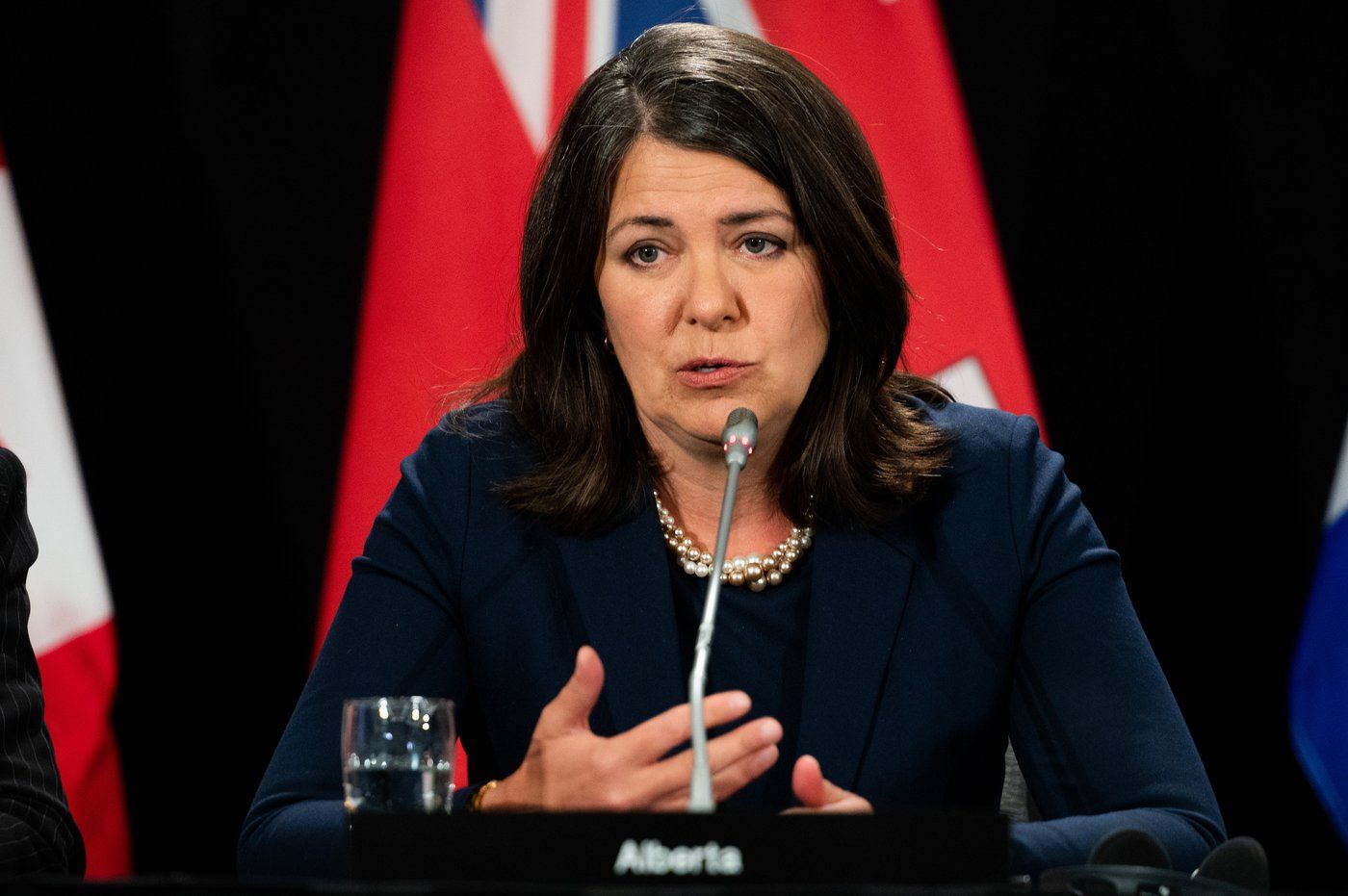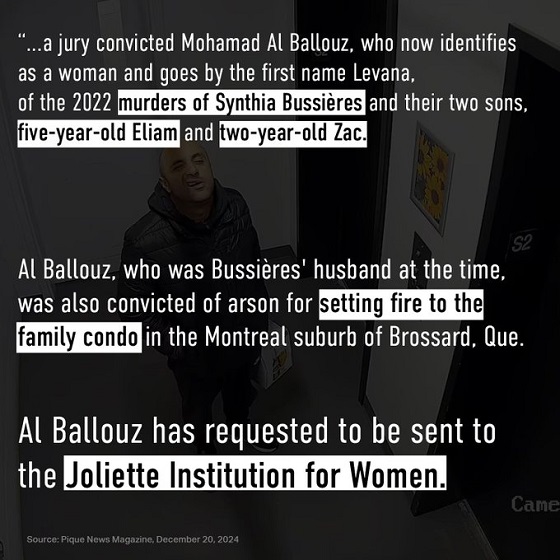Alberta
Statement from Premier Danielle Smith regarding Ethics Commissioner’s Report

From the United Conservative party
Ethics Commissioner Confirms CBC and NDP lies regarding Crown Prosecutor Contact; Premier to seek formal guidelines on future policy discussions with Justice Minister
(May 18, 2023) — Danielle Smith, Leader of the United Conservative Party of Alberta, issued the following statement:
“I was gratified to read the Ethics Commissioner’s findings confirming that neither I, nor anyone in my office, tried to or did contact any Crown Prosecutors regarding any COVID-19 prosecutions.
“This confirms that the CBC and NDP have repeatedly lied to Albertans for months with false accusations stating that my office and I had done so. Both the CBC and NDP should apologize and withdraw those false accusations immediately and publicly. They should also apologize to Alberta’s independent Crown Prosecutors and Civil Service for repeatedly questioning their integrity in addressing these matters.
“As to my discussions regarding COVID-related charges and violations with my Minister of Justice, Tyler Shandro: I have always stated I wanted to find a path of amnesty for those charged with non-violent COVID-related offences and violations during the pandemic.
“As I have explained before, I spoke with Minister Shandro, who is an experienced lawyer (I am not) as I was very interested in his advice on what could legally be done about this. He gave me his advice on the matter and, as the Commissioner has also confirmed, I accepted it. It went no further after that.
“In the Commissioner’s opinion, I had a discussion with Minister Shandro that was inappropriate regarding this subject.
“I invited the Commissioner to give me and future premiers the benefit of some guidance on how to advance sensitive policy issues similar to this with the Minister of Justice if she thought there was a more appropriate way.
“Although she has yet to offer a different approach or advice for me to consider in this regard, I will be seeking legal advice on creating specific formal guidelines as to when and how a Premier may speak with a Minister of Justice in the future about policy issues and other sensitive matters in order to respect all applicable rules and conventions. I will be asking the Ethics Commissioner to review those guidelines, once drafted, in order that her advice and input are incorporated.
“As to Mr. Pawlowski, a verdict in his case has been rendered by the Court and the matter is now closed.
“Given that various false and defamatory statements are now confirmed to have been made by the CBC and NDP in this matter against me and several individuals in my office, this matter remains the subject of potential civil litigation. I will confer with my counsel on what next steps are to be taken after the election.
“I look forward to spending the remainder of the campaign talking about issues that Albertans are focused on – namely the economy, jobs, affordability, public safety and healthcare.”
Alberta
Made in Alberta! Province makes it easier to support local products with Buy Local program

Show your Alberta side. Buy Local. |
When the going gets tough, Albertans stick together. That’s why Alberta’s government is launching a new campaign to benefit hard-working Albertans.
Global uncertainty is threatening the livelihoods of hard-working Alberta farmers, ranchers, processors and their families. The ‘Buy Local’ campaign, recently launched by Alberta’s government, encourages consumers to eat, drink and buy local to show our unified support for the province’s agriculture and food industry.
The government’s ‘Buy Local’ campaign encourages consumers to buy products from Alberta’s hard-working farmers, ranchers and food processors that produce safe, nutritious food for Albertans, Canadians and the world.
“It’s time to let these hard-working Albertans know we have their back. Now, more than ever, we need to shop local and buy made-in-Alberta products. The next time you are grocery shopping or go out for dinner or a drink with your friends or family, support local to demonstrate your Alberta pride. We are pleased tariffs don’t impact the ag industry right now and will keep advocating for our ag industry.”
Alberta’s government supports consumer choice. We are providing tools to help folks easily identify Alberta- and Canadian-made foods and products. Choosing local products keeps Albertans’ hard-earned dollars in our province. Whether it is farm-fresh vegetables, potatoes, honey, craft beer, frozen food or our world-renowned beef, Alberta has an abundance of fresh foods produced right on our doorstep.
Quick facts
- This summer, Albertans can support local at more than 150 farmers’ markets across the province and meet the folks who make, bake and grow our food.
- In March 2023, the Alberta government launched the ‘Made in Alberta’ voluntary food and beverage labelling program to support local agriculture and food sectors.
- Through direct connections with processors, the program has created the momentum to continue expanding consumer awareness about the ‘Made in Alberta’ label to help shoppers quickly identify foods and beverages produced in our province.
- Made in Alberta product catalogue website
Related information
Alberta
Province to expand services provided by Alberta Sheriffs: New policing option for municipalities

Expanding municipal police service options |
Proposed amendments would help ensure Alberta’s evolving public safety needs are met while also giving municipalities more options for local policing.
As first announced with the introduction of the Public Safety Statutes Amendment Act, 2024, Alberta’s government is considering creating a new independent agency police service to assume the police-like duties currently performed by Alberta Sheriffs. If passed, Bill 49 would lay additional groundwork for the new police service.
Proposed amendments to the Police Act recognize the unique challenges faced by different communities and seek to empower local governments to adopt strategies that effectively respond to their specific safety concerns, enhancing overall public safety across the province.
If passed, Bill 49 would specify that the new agency would be a Crown corporation with an independent board of directors to oversee its day-to-day operations. The new agency would be operationally independent from the government, consistent with all police services in Alberta. Unlike the Alberta Sheriffs, officers in the new police service would be directly employed by the police service rather than by the government.
“With this bill, we are taking the necessary steps to address the unique public safety concerns in communities across Alberta. As we work towards creating an independent agency police service, we are providing an essential component of Alberta’s police framework for years to come. Our aim is for the new agency is to ensure that Albertans are safe in their communities and receive the best possible service when they need it most.”
Additional amendments would allow municipalities to select the new agency as their local police service once it becomes fully operational and the necessary standards, capacity and frameworks are in place. Alberta’s government is committed to ensuring the new agency works collaboratively with all police services to meet the province’s evolving public safety needs and improve law enforcement response times, particularly in rural communities. While the RCMP would remain the official provincial police service, municipalities would have a new option for their local policing needs.
Once established, the agency would strengthen Alberta’s existing policing model and complement the province’s current police services, which include the RCMP, Indigenous police services and municipal police. It would help fill gaps and ensure law enforcement resources are deployed efficiently across the province.
Related information
-

 espionage1 day ago
espionage1 day agoEx-NYPD Cop Jailed in Beijing’s Transnational Repatriation Plot, Canada Remains Soft Target
-

 2025 Federal Election2 days ago
2025 Federal Election2 days agoNeil Young + Carney / Freedom Bros
-

 Business1 day ago
Business1 day agoDOGE Is Ending The ‘Eternal Life’ Of Government
-

 2025 Federal Election2 days ago
2025 Federal Election2 days agoRCMP Whistleblowers Accuse Members of Mark Carney’s Inner Circle of Security Breaches and Surveillance
-

 International2 days ago
International2 days agoUK Supreme Court rules ‘woman’ means biological female
-

 2025 Federal Election1 day ago
2025 Federal Election1 day agoTucker Carlson Interviews Maxime Bernier: Trump’s Tariffs, Mass Immigration, and the Oncoming Canadian Revolution
-

 2025 Federal Election1 day ago
2025 Federal Election1 day agoCanada drops retaliatory tariffs on automakers, pauses other tariffs
-

 2025 Federal Election2 days ago
2025 Federal Election2 days agoBureau Exclusive: Chinese Election Interference Network Tied to Senate Breach Investigation








